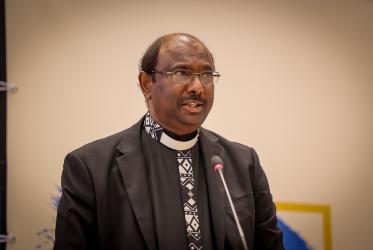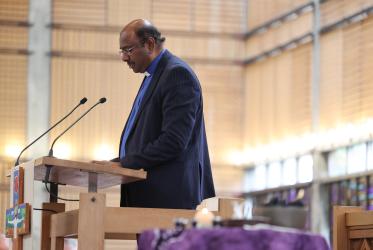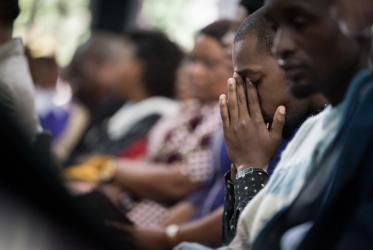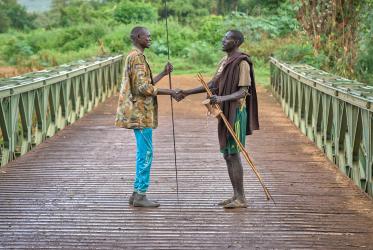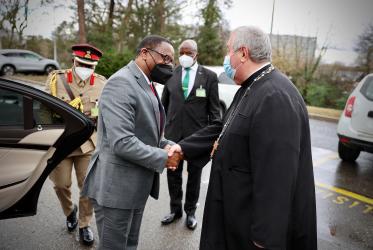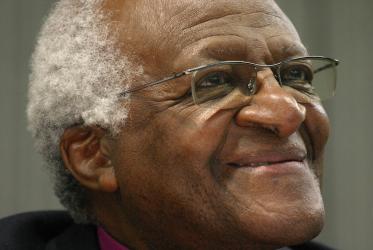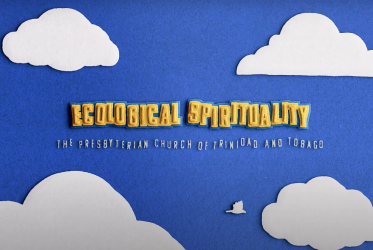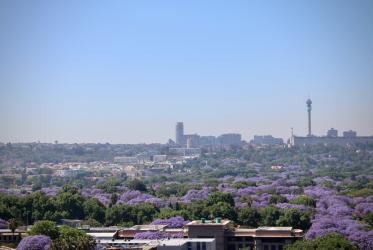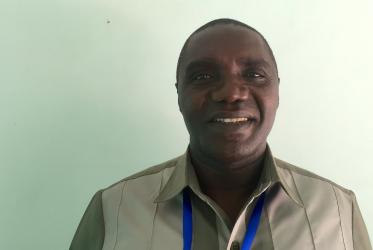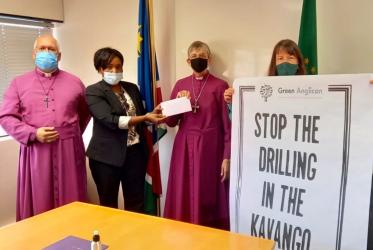Displaying 1 - 20 of 100
WCC institute encouraged rethinking theology
23 November 2023
Joint Ecumenical Prayer on the Situation in Sudan
28 July 2023
President of the Republic of Malawi visits WCC with hope for Africa
24 February 2022
Protecting Ethiopia’s church forests
27 October 2021
Calls grow globally for peace and accountability in South Sudan
24 September 2021
South Sudanese Churches shelter populations displaced by floods
23 September 2021

